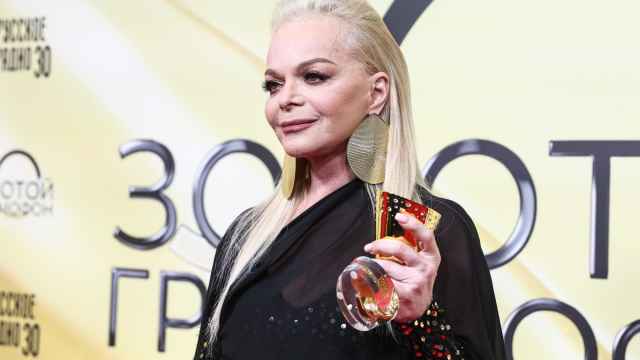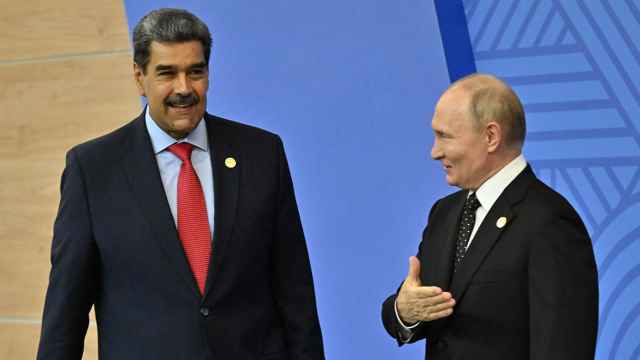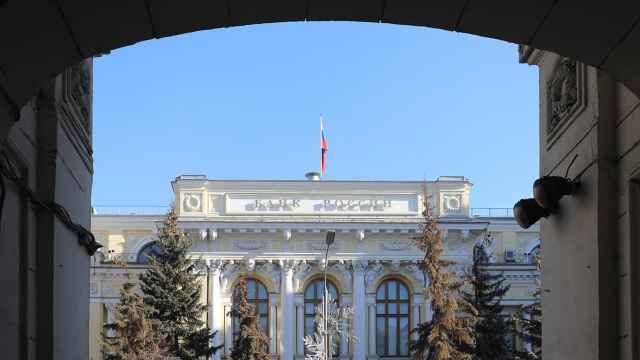Russia's recovery from the 2008 crisis is weak relative to its international peers and slower than after the financial crash of 1998, the World Bank said Wednesday as it lowered its 2012 growth forecast.
There are 20 percentage points between projections on the eve of the 2008 crisis for Russia's gross domestic product in 2012 and today's reality — compared to 7 percentage points for high-income OSCE countries and 15 points for developing European Union economies, according to the World Bank's latest Russian Economic Report.
After the 1998 financial shock, the country's GDP took seven quarters to recover to its former levels, the World Bank said. After 2008's contraction, it took 14 quarters. And although growth was 4.3 percent last year, it has not come close to pre-2008 highs of above 7 percent.
“If you look at other big emerging economies they have actually returned to the growth rates they had pre-crisis,” said Kaspar Richter, the World Bank's lead Russia economist. “Russia has taken a hit in the post-crisis environment.”
In the 43-page report released Wednesday, the World Bank reduced its forecast for GDP growth in 2012 to 3.5 percent — last year it predicted 3.8 percent. Growth rates in 2013 would rise a little to 3.9 percent, the organization said.
Russia's comparatively poor performance was not something entirely under the control of the Kremlin. The economy was overheating prior to 2008, Richter said during a news conference at the World Bank's Moscow headquarters, and — unlike many other countries — it suffered severely when commodity prices plummeted.
The comparison with the recovery after 1998 was also not entirely fair, the report conceded, as that crisis was regional and the economy had enjoyed huge spare capacity.
But the World Bank highlighted policy-influenced factors behind Russia's sluggish rebound. In particular, low levels of investment. Before the crisis, investment was 26.4 percent of GDP while today it stands at about 22 percent.
“Russia has to take a look at structural weaknesses that keep its growth rates low,” Richter said. “The government can make a big difference going forward.”
Accession to the World Trade Organization and the way in which Moscow leverages its membership with domestic reform could be a big source of growth, Richter said. The World Bank estimated that entry to the WTO could add about $162 billion to Russia's annual economic output over the long term.
Explaining the lowering of this year's growth forecast by 0.3 percent, Richter said 2011's figure had been boosted by companies restocking after the crisis and a good year for agriculture — both factors that are likely to fade in 2012.
Renaissance Capital raised its 2012 growth prediction Wednesday to 3 percent on the back of a more positive international economic backdrop. BNP Paribas said they saw growth at 4.7 percent. The Economic Development Ministry forecasts that GDP will climb 3.7 percent in 2012, 4 percent in 2013 and 4.6 percent in 2014.
“We live in quite good times,” World Bank's Russia director Michal Rutkowski told reporters. He stressed the country's low level of public debt and its low welfare index score — the unemployment rate added to the inflation rate — compared to its European counterparts.
But despite an emphasis on Russia's “robust” economic performance, the report warned of a growing dependency on international commodity prices. In 2007, the budget balanced at less than $30 a barrel of crude whereas predictions for 2012 put this measurement above $115.
“The best part of Russia's recent economic achievements is based on the high global oil prices,” the World Bank said.
Russian stocks retreated from a one-week high, as oil, the country’s main export revenue earner, fell after confidence among U.S. consumers dropped and shares of energy companies retreated, Bloomberg reported Tuesday.
The Market Vectors Russia ETF, a U.S.-traded fund that holds Russian shares, fell 1.3 percent to $31.68. The RTS Volatility Index, which measures expected swings in the index futures, dropped 3.1 percent to 30.87.
A Message from The Moscow Times:
Dear readers,
We are facing unprecedented challenges. Russia's Prosecutor General's Office has designated The Moscow Times as an "undesirable" organization, criminalizing our work and putting our staff at risk of prosecution. This follows our earlier unjust labeling as a "foreign agent."
These actions are direct attempts to silence independent journalism in Russia. The authorities claim our work "discredits the decisions of the Russian leadership." We see things differently: we strive to provide accurate, unbiased reporting on Russia.
We, the journalists of The Moscow Times, refuse to be silenced. But to continue our work, we need your help.
Your support, no matter how small, makes a world of difference. If you can, please support us monthly starting from just $2. It's quick to set up, and every contribution makes a significant impact.
By supporting The Moscow Times, you're defending open, independent journalism in the face of repression. Thank you for standing with us.
Remind me later.






